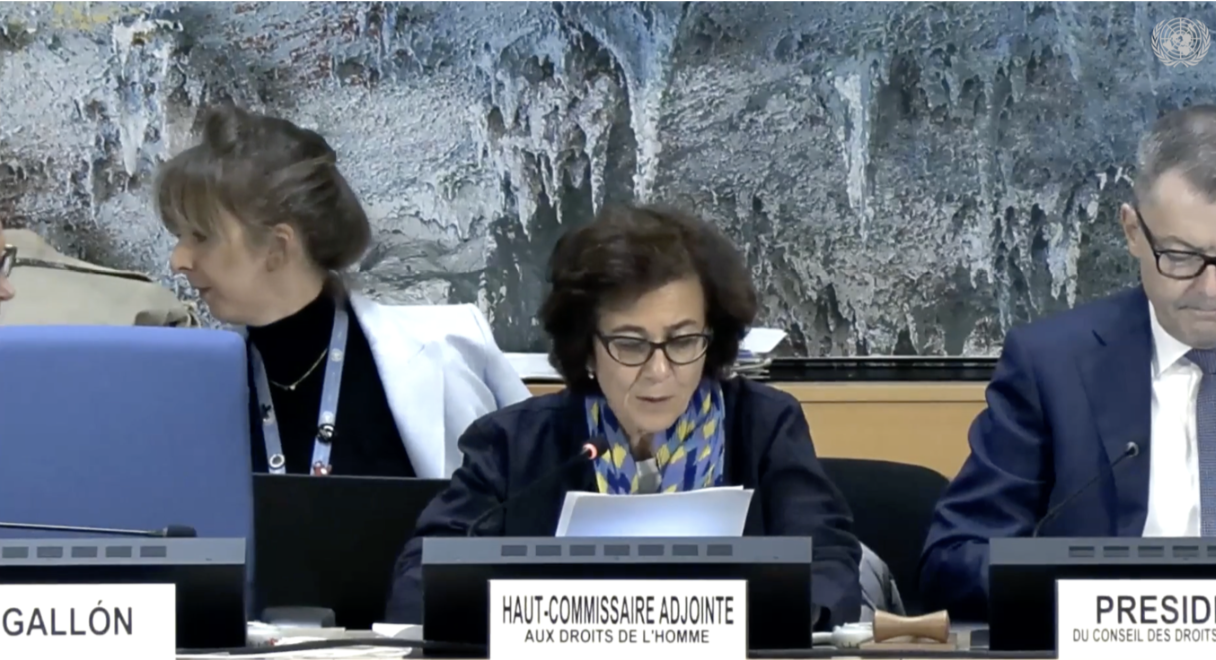
Negotiations for a Seat for Women in Justice
60th Session of the Human Rights Council
08 September - 08 October 2025
Annual Discussion on the Integration of a Gender Perspective (HRC res 6/30)
30 September 2025
By Rose Chiara Atieno /GICJ
Executive Summary
At the 33rd meeting of the 60th session of the Human Rights Council, the council held the annual discussion on the inclusion of a gender perspective, with the focal point of this discussion being the inclusion of women in different places of governance. The panellists included different active members of the promotion of women’s rights, including Ms Nada Al Nashif, Ms Devi Khadka, and a few other prominent people.
Although there has been growth in the area of gender equality, there still remains grave issues in the world, including the continued rise of hate speech and hate crimes towards women. In places of conflict, women and girls continue to be victims of war, such as sexual violence continues to be used as a method of war. As for transitional justice, women and girls are rarely considered in these conversations, often drowning out the understanding that the effects of war extend beyond gender. Additionally, at times of war, women continue to bear the responsibilities and burdens of war, such as they continue to be those who care for the injured and affected families, while also being the ones who face some of the most atrocious crimes, such as sexual violence. However, they remain unrepresented for the most part as it pertains to transitional justice.
In Latin American countries, the inclusion of a gender perspective, as well as the inclusion of women in the process of transitional justice, has proved to be 1 that produces sustainable change for those areas previously affected by conflict.
Geneva International Centre for Justice (GICJ) champions the work of the council in the inclusion of women in all stages of transitional justice, urging member states to further promote the inclusion of women in all sectors, especially in justice. Additionally, we call for the council, international community, and stakeholders to push beyond performative inclusion of women and rather impactful inclusion of women that reflects the actual reality of what women need during these processes. We condemn all forms of discrimination against all persons, including women and purport that human rights are not selective and thus should include women's rights.
Background
The United Nations Human Rights Council resolution 6/30 titled “Integrating the human rights of women throughout the United Nations system” was adopted in 2007 in the sixth session of the council. The resolution represents a significant step towards mainstreaming a gender perspective across all levels of the UN system. It reaffirms the international community’s commitment to promoting and protecting the human rights of women and girls, building on key legal and political instruments such as the Convention on the Elimination of all Forms of Discrimination Against Women (CEDAW), the Beijing Declaration and Platform for Action, and other human rights treaties. Recognising that women and girls often face multiple and intersecting forms of discrimination, the resolution stresses the need to incorporate a gender perspective. To achieve this, it calls on states, the UN organs, and other relevant actors to take concrete measures that ensure gender equality in both representative and decision-making. Among its key provisions, resolution 6/30 urges states to promote gender balance in staffing and nominations to treaty bodies, international courts, and decision-making structures, as well as to use gender inclusive language in official UN documentation. It further emphasises the importance of collecting and using sex- sex-disaggregated data and other relevant information to enable gender sensitive analysis in the development, implementation, and evaluation of policies and programs. The resolution encourages states to fulfil their obligations under international treaties, to withdraw reservations that are contrary to the object and purpose of such treaties, and to ratify relevant human rights treaties. Additionally, the resolution requests that UN treaty bodies, special procedures, and the Human Rights Council itself systematically integrate gender perspectives into their mandates, reports, and working methods. To institutionalise this commitment, the resolution decides that the Human Rights Council will hold an annual full-day discussion on the human rights of women, including a specific focus on violence against women, as a regular part of its programme of work. It also invites the Office of the High Commissioner for Human Rights (OHCHR) to prepare a report on challenges and obstacles to implementing gender integration and to provide recommendations for improving these efforts. The resolution calls for closer cooperation among UN entities, including OHCHR, the Division for the Advancement of Women, and the Special Adviser on Gender Issues, to ensure more coordinated and effective implementation. By adopting Resolution 6/30, the Human Rights Council established a comprehensive framework to ensure that the promotion and protection of women’s human rights are not treated as isolated or secondary concerns but are instead fully integrated into the UN’s broader human rights agenda. Over time, this resolution has served as a foundation for ongoing gender integration initiatives within the Council and across the UN system, reinforcing the principle that gender equality is both a goal in itself and a prerequisite for the realisation of all human rights.
Interactive Dialogue
Opening Statement – Nada Al-Nashif, Deputy High Commissioner for Human Rights.

Ms. Nada Al-Nashif opened her statement by welcoming the house to the meeting on the gender perspective, in which she highlighted this year’s focus on transitional justice. Highlighting that figures confirmed the number of women and girls killed in the years 2023 and 2024 was three times higher than that in the previous year. Additionally, sexual violence against women and girls has increased by a whopping fifty per cent. “Their involvement is not a concession; it is a prerequisite for legitimacy and success”, stated Ms. Al-Nashif as she urged that women and girls must not only be involved for merit but for actual impact and purpose.
She emphasised the lack of representation of a gender perspective of women and girls as it pertains to transitional justice. She further highlighted that gender is often ignored as a whole in transitional justice, or rather narrowly represented during these processes in which she called a fundamental failure. Accordingly, she brought attention to the successes of the inclusion of women in such processes by noting a few case examples.
In the Democratic Republic of Congo, the High Commissioner helped to embed a gender perspective in transitional justice, which led to the adoption of the National Transitional Justice Policy by the council in May of 2025. In the Gambia, the commissioner worked with the Truth, Reconciliation and Reparations commission, and others helped provide similar results in the integration of women and girls.
Moreover, she highlighted the importance and need for the involvement of civil society in such conversations to advocate for women and girls while also highlighting the shame of the shrinking space and underfunding for said civil societies. She highlighted that the examples of Peru, Sierra Leone, and Timor-Leste show that transitional justice must include the perspective of women, girls, men, and people of underrepresented communities.
Conclusively, she gave some remarks on what changes need to occur in these transitional justice systems.
- Transitional Justice mechanisms must tackle intersectional discrimination and patriarchy, and institutional reform and development should aim to change future practices as well as addressing the past. Reparations should aim to transform lives by integrating women’s socioeconomic rights, including access to land, livelihoods, and education.
- Transitional Justice must be found on gender parity, with all transitional justice bodies, delegates, and negotiating teams should be gender equal. These avenues should include formal, safe, and inclusive spaces for women to be active members in these processes.
She concluded that we, as a society, should redouble our efforts in solidarity to ensure that peace and transitional justice processes uphold and promote women’s rights for the benefit of all.
Statements by Panellists
Ms. Devi Khadka, Women’s Rights Activist, and former member of the Constituent Assembly of Nepal
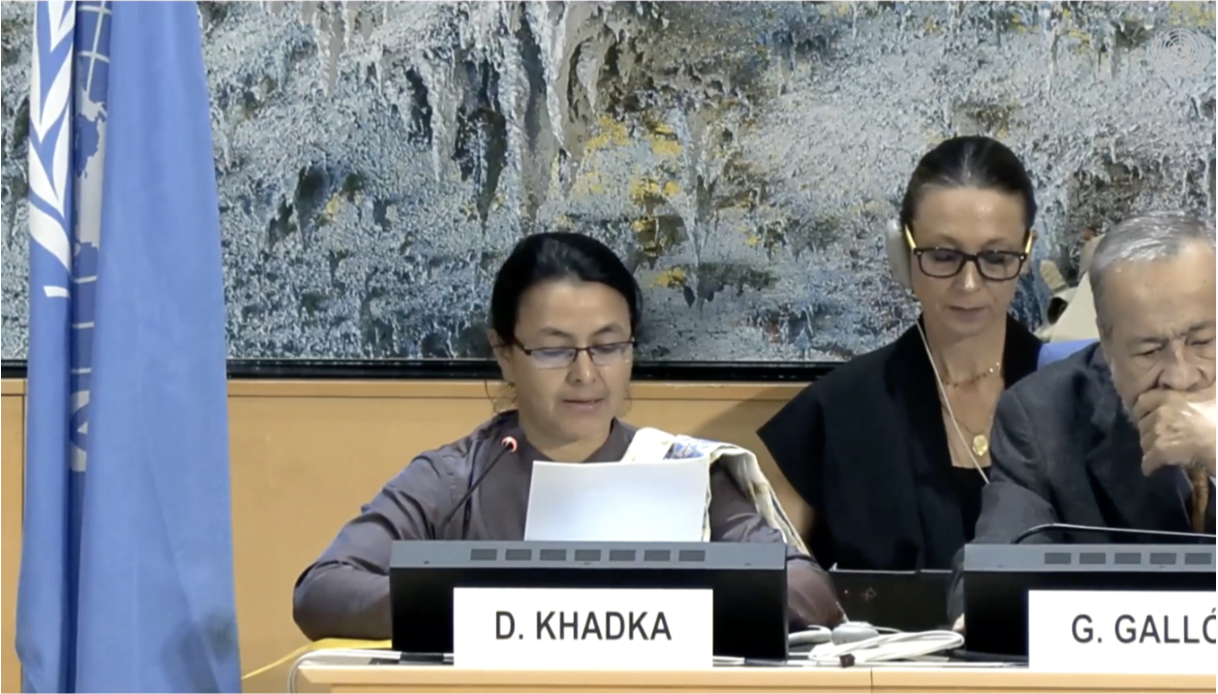
Ms. Khadka opened her statement, thanking the floor for their active engagement in the dialogue. She stated that she stood as a representative for those who have been victim of sexual violence in the ongoing war in Nepal. She noted that there are various declarations, statutes and many other legal forums and justice processes that “ensure” the rights of the protection of women, but the reality proves to be quite astray from the scripture. She stated that whenever the gender issue is raised, the discussion is merely limited to sexual violence only, and it is normally regarded only from the superficial point of view and not understood as a by-product of institutionalised patriarchal mentality.
She stated that her role in this discussion was one in which she hopes to aim to not only gain justice for the women of Nepal but also help with the recognition of the crimes that have been committed against them, echoing the theme of accountability within transitional justice.
As such, Ms Khadka raised some important questions for the council and the international community:
- “How many more times and how long are we going to focus on sexual violence only and neglect structural inequalities?”
- “Why do the most vulnerable women within fragile countries have to endure such pain, and why are they deprived of transitional justice?”
- “How many more years do survivors have to remain examples?”
- “How can we envision a civilised world by putting so much injustice in the womb of this world?”
She urged that women’s full equal and meaningful participation should be ensured at every step of the peace process, decision-making and justice, insisting that women are not only victims, but they are power, and their inclusion remains crucial.
Mr Gustavo Gallón, Ambassador Extraordinary and Plenipotentiary of Colombia
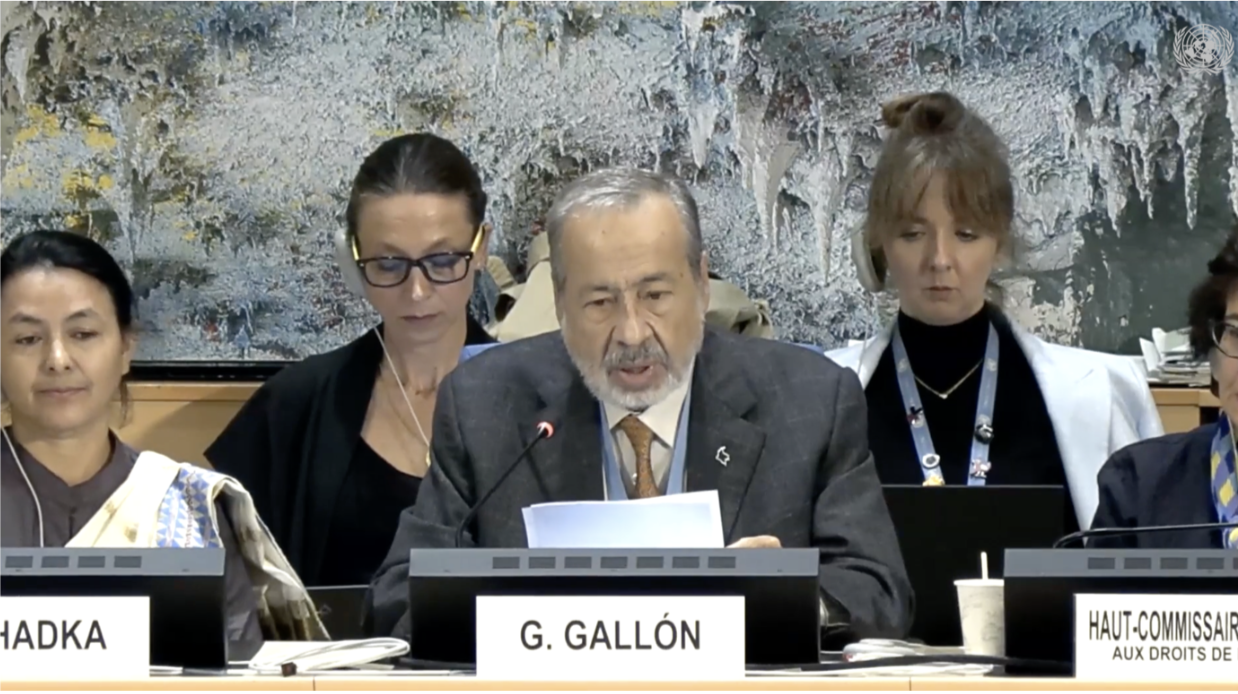
Mr Gallon expressed his gratitude for being able to discuss this issue, as he states that his country knows first-hand how important it is to place women, girls, and people with diverse identities at the centre of peacebuilding. He states that during the conflict, it was these groups that bore the tragedies of the conflict, such as the sexual violence, land grabbing, and forced silence. He highlighted that it was these groups that kept hope and opened paths of resistance that set the stage for justice and non-repetition. The country ensured that the peace agreement of 2016 would include a special gender chapter covering over 120 specific measures that would guarantee the rights of women and other marginalised groups. He states that this achievement came from the efforts of women who organised at the World Summit of Women Peace and a gender sub-commission that covered the negotiations.
He notes that this legacy continues to be alive in their justice system, citing the special peace court, a court established during the peace agreement to address the human rights violations during the conflict. This court opened a case dedicated to prosecuting those who perpetrated sexual violence against others during the violence, which included a section titled “My Body Is the Truth”. He shed light on the continued efforts of women of Colombia in instilling the feminist perspective in the law in order to ensure justice for women.
Notably, he recognised that although there have been these efforts in the inclusion of women, there is still a long road ahead in the country, noting that the weight of the patriarchy remains heavy within the country. He recognised that Colombia’s trajectory has not been great, but at the very least, it is an honest one that reflects the need for the inclusion of women in all sectors of justice.
Bernard Duhaime, Special Rapporteur on truth, justice, and reparations
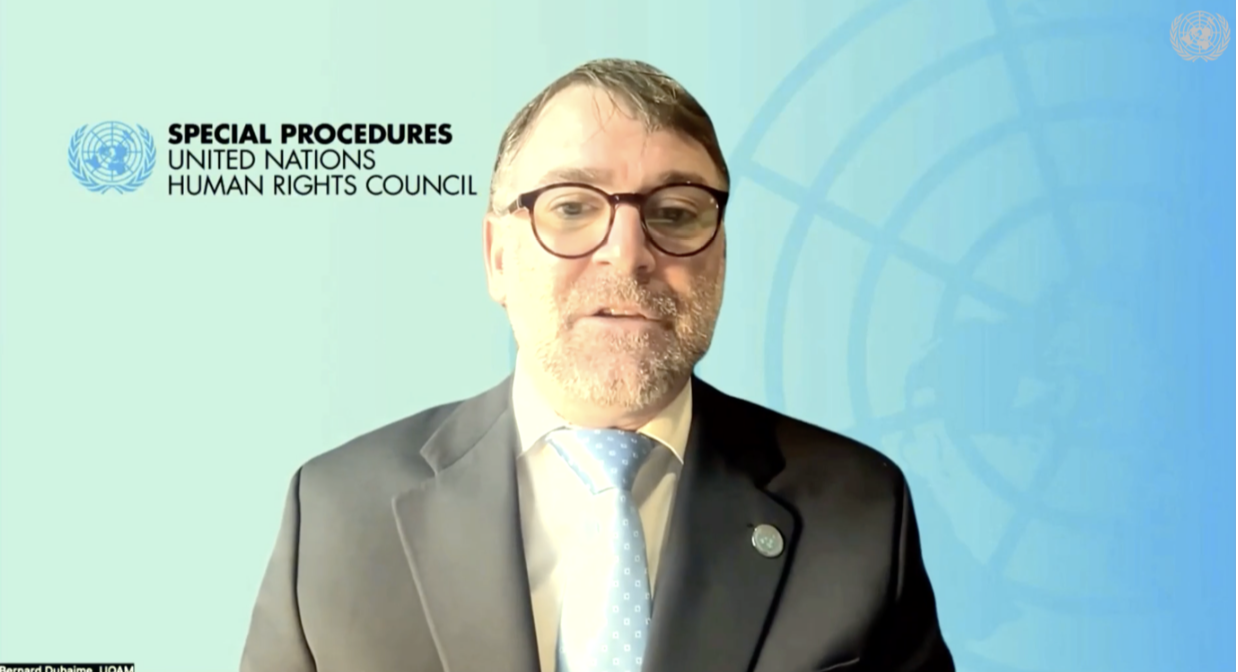
Like the other speakers, Mr. Duhaime noted the importance of this issue and thanked the council for their continued work on the inclusion of a gender perspective.
He highlighted that the report showcases how the first truth commissions ignored manifest violations based on gender identity and other forms of discriminatory factors.
His overall speech advocated for the inclusion of people regardless of their race, gender, and other discriminatory factors and stressed the need for the continued efforts of states and the international community in including women and girls in all stages of justice. He states that the incorporation of a gender perspective in reparation programs is crucial and aims at redress for sexual and gender-based violence and to identify reparation decisions that may have an impact. He advocated for a victim-centred approach to justice to ensure that all affected persons receive justice in one way or another while also ensuring sustainable change. He stated the reparation measures must take a holistic view in factoring in gender and gender-based violence, and other intersectional criteria should be considered in conjunction. Reparation programs should be creative and flexible to overcome social, cultural, and administrative boundaries, and reparations should aim to be transformational rather than restitutive.
He urged that states identify the measures in which they have in place for the inclusion of women and the gender perspective, and address the gaps they identify through a process that includes women to effectively address the issue while including representation of the targeted recipients of this change.
Statements by State Delegates
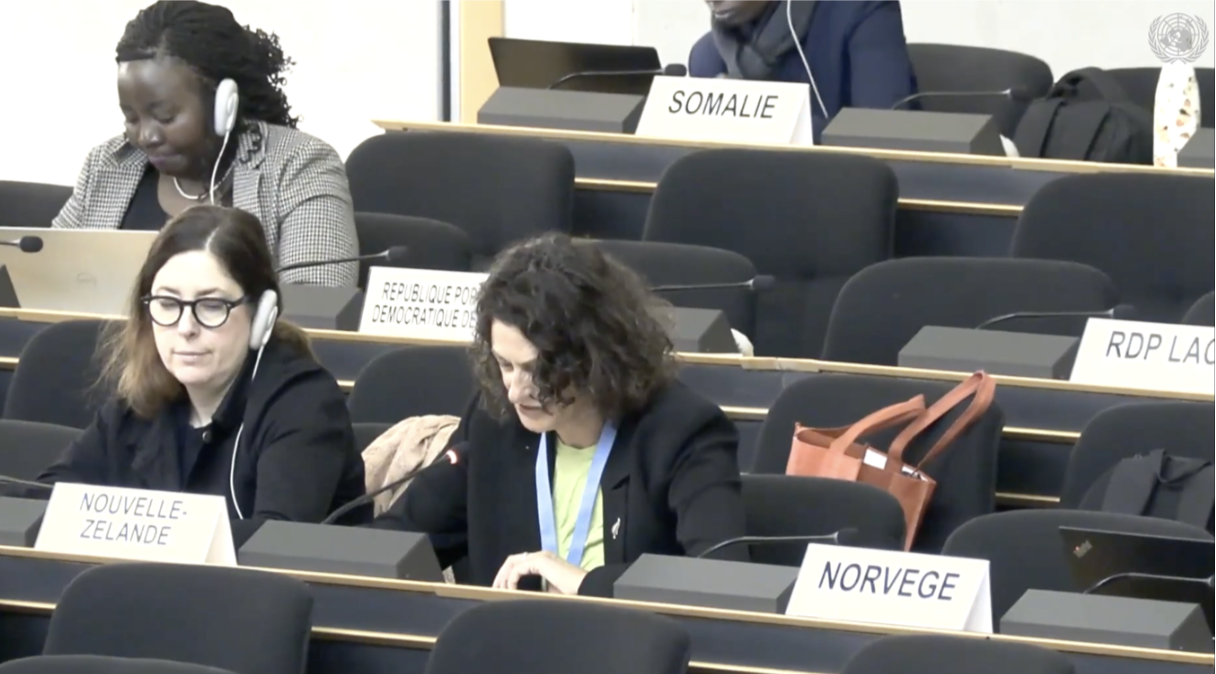 The delegate of New Zealand, speaking on behalf of Australia, Canada and New Zealand, started by reaffirming their commitment to the inclusion of women and girls. They highlighted the growing evidence that the inclusion of women and girls in peacebuilding and transitional justice leads to lasting and sustainable change. Conclusively, they commended the efforts of different organisations and civil society in advocating for this needed change and stated that they remain committed to working with partners to promote approaches that uphold justice and human rights while also building inclusive societies.
The delegate of New Zealand, speaking on behalf of Australia, Canada and New Zealand, started by reaffirming their commitment to the inclusion of women and girls. They highlighted the growing evidence that the inclusion of women and girls in peacebuilding and transitional justice leads to lasting and sustainable change. Conclusively, they commended the efforts of different organisations and civil society in advocating for this needed change and stated that they remain committed to working with partners to promote approaches that uphold justice and human rights while also building inclusive societies.
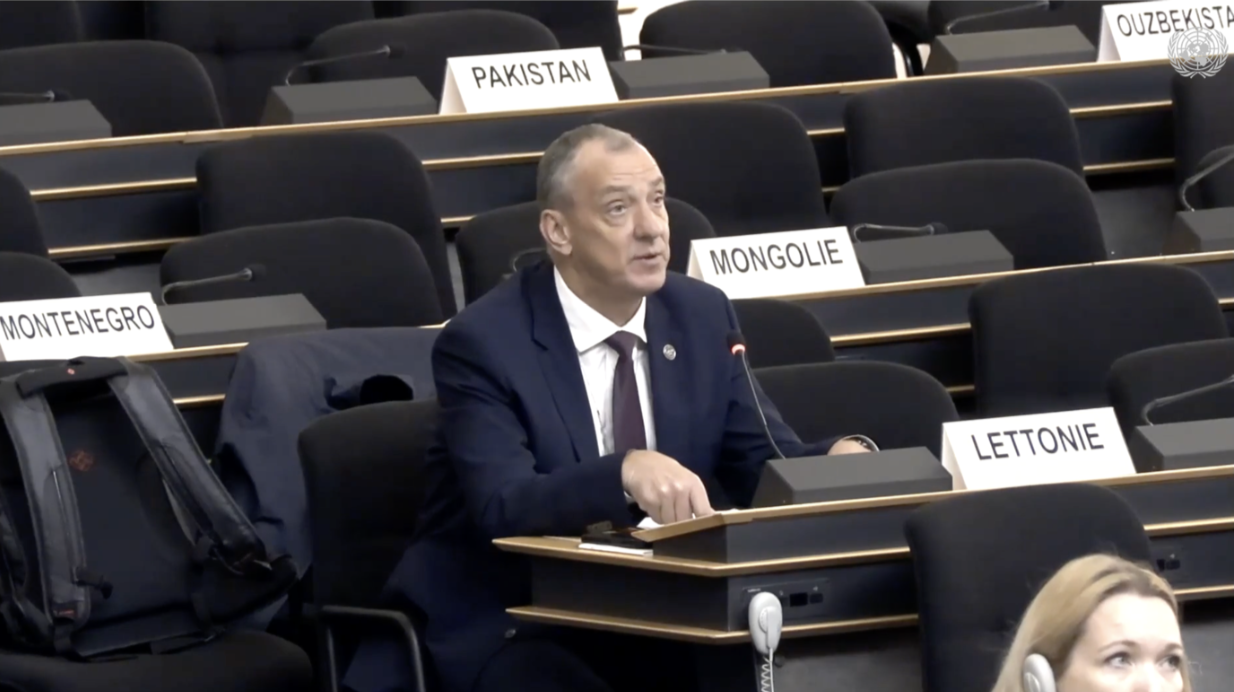
The delegate of Latvia (on behalf of the Nordic Baltic states) thanked the panellists for their efforts in this matter. The delegate emphasised that the belief that this conversation is an essential step to understanding, inter alia gender gender-related gaps, fostering inclusive approaches to transitional justice. Finally, the delegate concluded by asking, “what concrete measures can UN mechanisms take to ensure that transitional justice processes are not only gender sensitive but truly transformative, addressing inequalities and intersecting forms of discrimination?”

The European Union stated their support for this resolution and the different suggestions heard from the panellists’ discussion, stating that transitional justice processes play a vital role in securing accountability, especially as it pertains to women and girls.
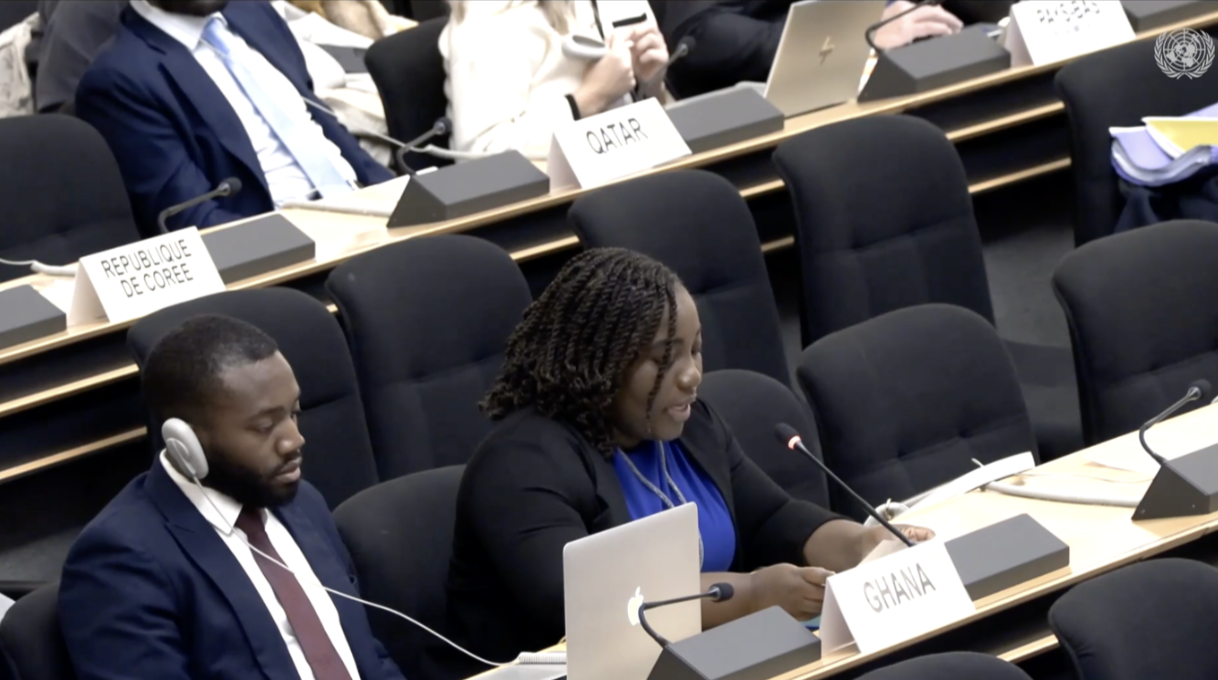
The delegate of Ghana (On behalf of the African Group) highlighted their acknowledgement of the issues of the discussion, stating that the group has provided a guided framework to enhance state capacity to enhance gender equality and women empowerment. They noted that the African Union transitional justice policy and the African Union strategy for gender equality and women’s empowerment provide a comprehensive framework on these issues.
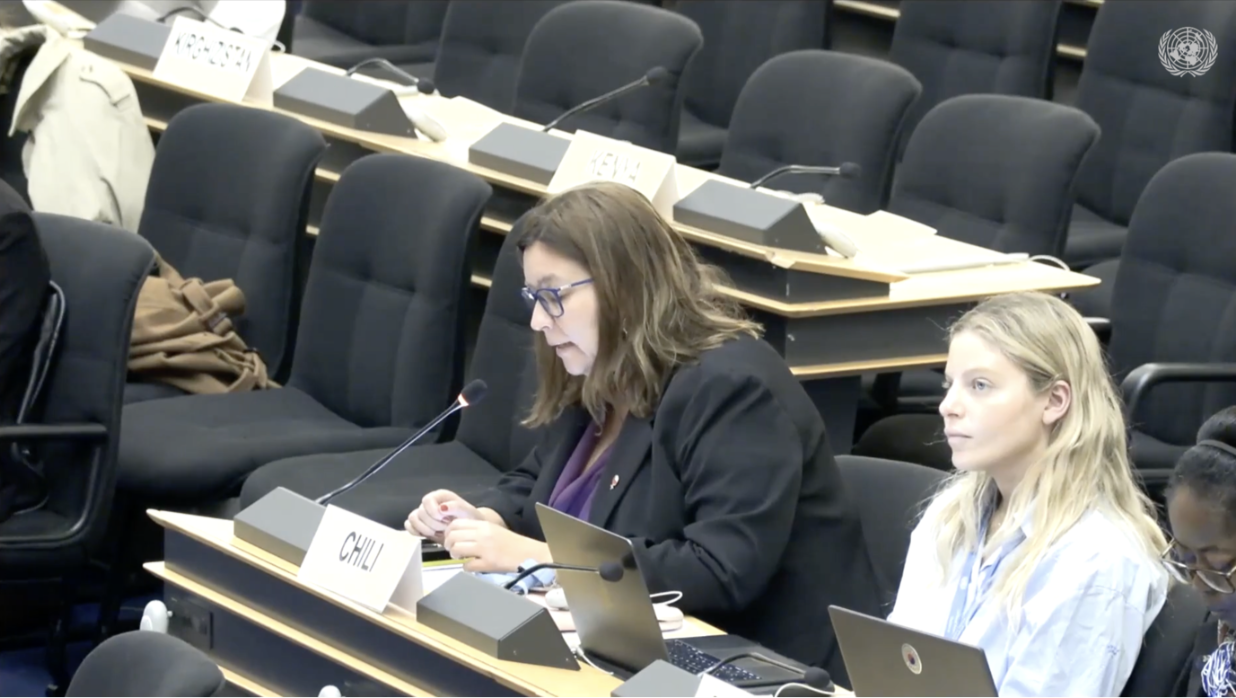
The delegate of Chile (on behalf of a group of Latin American countries) noted that they reaffirmed that including a gender perspective should not only be restricted to the establishment of fact but should also contribute to transforming discriminatory structures.
They noted that there has been progress made, but there still remains enough margin for change and that in order for transitional justice to be transformative and guarantee non-repetition, it must be done through a victim-based lens. They urged states to recall that integrating a gender perspective is a crucial condition for truth, justice, and sustainable peace.
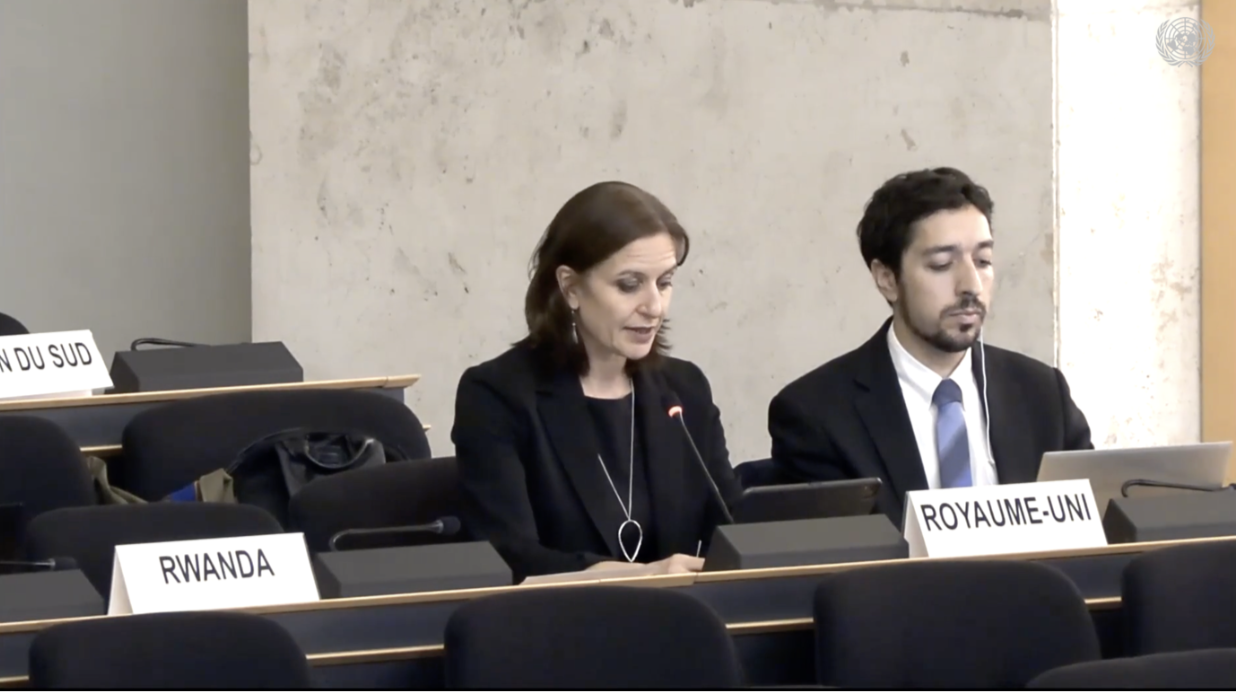
The United Kingdom aligned with the ideologies of the discussion and stated that they have continuously championed the integration of gender perspective in and out of its country, giving examples of how that integration has flourished in Latin American states.
To conclude, the delegate asked if the panel could expound on some of the ways in which the council can ensure there can be further integration within transitional justice globally.
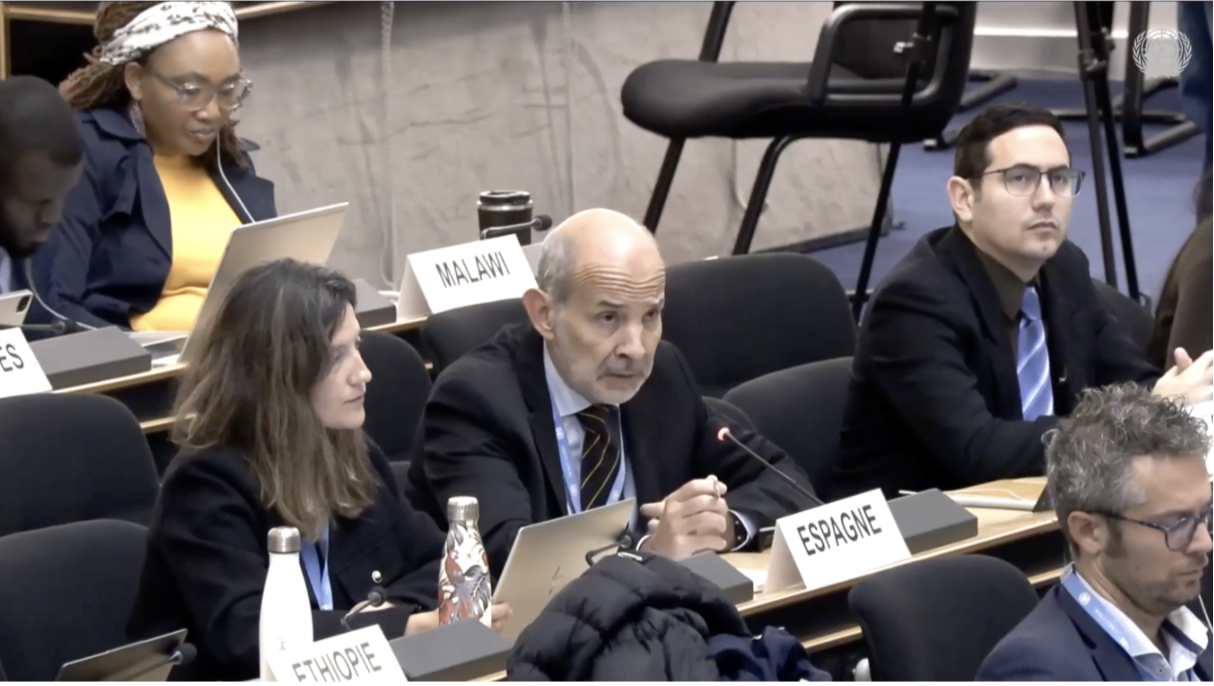
The delegate of Spain thanked the floor for their important work on the issue of the inclusion of a gender perspective, stating that it is essential to include a gender perspective as it helps highlight patterns, promote dissemination, and ensure the full equal participation of women and girls.
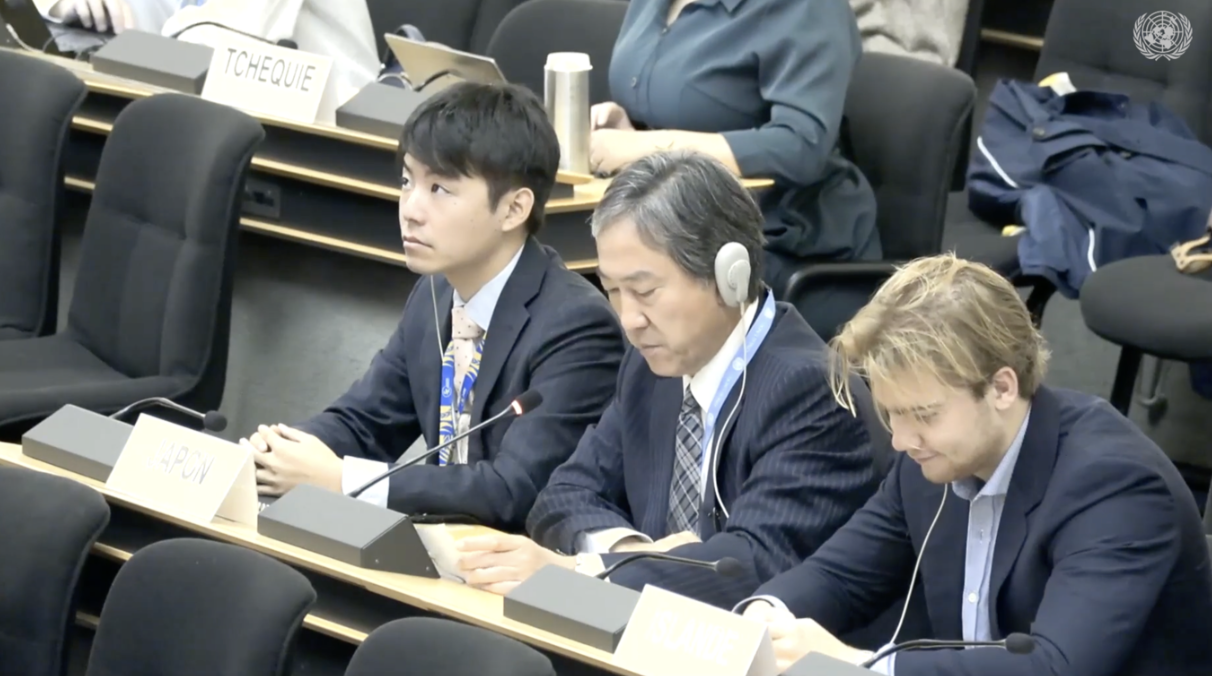
The delegate of Japan opened the floor by discussing the way in which transitional justice often focuses solely on the sexual violence faced within conflict, while failing to address the structural gender inequalities that create cycles of exclusion and violence in times outside of conflict. Japan noted that they were very dedicated to addressing the root causes of sexual violence against women and ending impunity. They highlighted the various efforts they have made in supporting women and girls in places of conflict, such as their partnership with the UN Women to support over 8000 women. The overall sentiment, though the Japanese delegation presented, was that of unity to help the inclusion of women on a global scale.
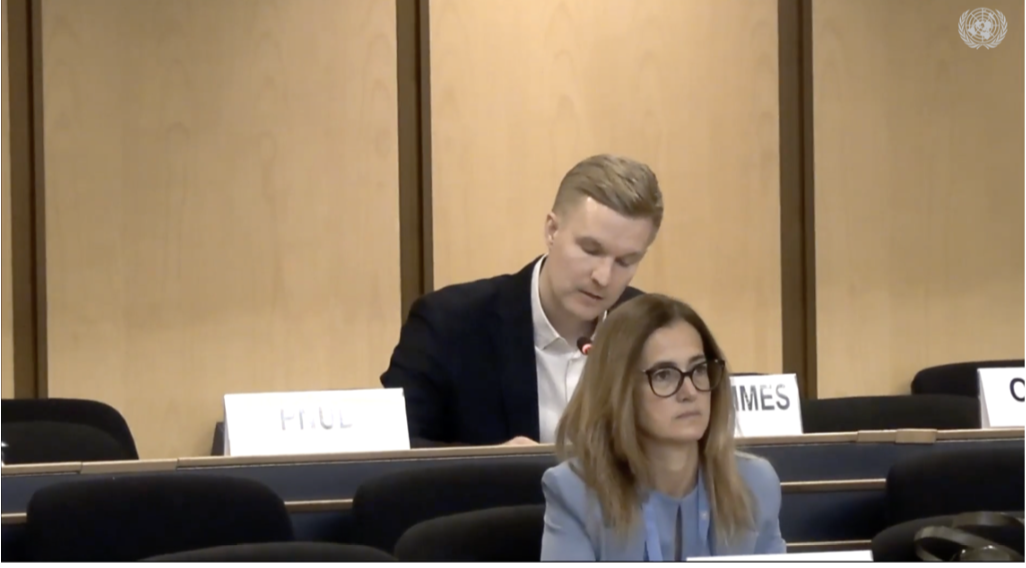
UN Women and UNFPA thanked the council for their efforts in this resolution. They noted that to make transitional justice gender responsive, we must act on three fronts:
- Processes must address the violence faced by women, girls and boys and the intersection of gender and other forms of discrimination,
- transitional justice must address the root causes of conflict and abuse,
- and it must guarantee the full and meaningful participation of women and girls in these processes as agents of change
Statements by NHRI and NGO’s
The statement delivered by the Human Rights Commission of the Philippines addressed the way in which the world continues to have too many cases in which women's and girls’ rights are ignored, violated, and rarely protected.
The statements conveyed by the non-governmental organisations conveyed a sense of urgency as it pertained to the inclusion of women. Most NGOs criticised the ways in which women and girls are often left out of conversations in transitional justice, often placing their inclusion as performative and not impactful. Different NGO's urged states to ensure that women are represented in different places of power. Other NGO's spoke about the underrepresentation of mothers and daughters affected by crises, showcasing that these crises can often put the rights of women in jeopardy, such as financial burden and land grabbing due to institutionalised patriarchal norms. These inclusions highlight the different intersecting issues and the nuances in discussing the inclusion of women and girls in transitional justice, while also highlighting the reasons as to why said inclusion is important.
Concluding remarks
In their final remarks, all speakers acknowledge the questions and remarks made by the members of the council and other participants during this dialogue, while also highlighting that although there has been progress made and the inclusion of a gender perspective, there are still great strides to go until women are fully represented in transitional justice. Ms. Kateryna Busol stressed the importance of accountability and its role in transitional justice, stating that it is difficult to have effective transitional justice if there is little to no accountability from those who perpetrated the violence. In matters concerning the rights of women, this is often the case and has become the unfortunate reality of women seeking justice for the wrongs that have been done to them. Ms. Khadka’s final remarks echoed a lot of what was mentioned by other panellists and different member states. She urged for a victim-based approach to these issues, highlighting that those who face such traumas of war and other forms of violence remain the best advocates for the form of change that they need and therefore need meaningful representation.
Conclusion
At a time when the world is riddled with crises, the conversation surrounding the inclusion of a gender perspective as it pertains to transitional justice remains important, as it is important to set an effective framework including women in the processes. The international community, the council and stakeholders must be prepared to support countries in crises at the time of transitional justice, ensuring that all affected people of the conflict are involved in these processes. States should continue to support the council in its efforts and engage with the different treaty bodies directed towards targeting different forms of discrimination, especially the Convention on the Elimination of All Forms of Discrimination Against Women (CEDAW).
Position of Geneva International Centre for Justice
Geneva International Centre for Justice( GICJ) affirms the sentiments of this annual discussion and supports the work of the council in the inclusion of a gender perspective. We condemn all forms of discrimination against women. As such, we recommend that the council strengthen the efforts in the inclusion of women and girls in transitional justice processes, as echoed by different members of the Council, such inclusion has documented sustainable change within the case examples given during this dialogue. Additionally, we urge that states, the international community, and stakeholders advocate for the inclusion of women, not just in conversations pertaining to transitional justice, but also in conversations pertaining to social, economic, and political issues. States must also ensure the ratification of all human rights frameworks, such as the Convention on the Elimination of All Forms of Discrimination Against Women, and other human rights frameworks that pertain to the rights of women, to ensure that protection and promotion of the rights of women extends beyond the performative plane. We continue to condemn all forms of discrimination against women and continue to be the champion of the work of the council and all members involved in their commitment to human rights. Human rights will never be fully fulfilled if women and girls are not afforded their basic human rights, as women’s rights are human rights.




